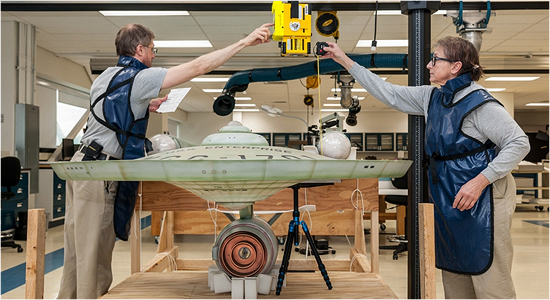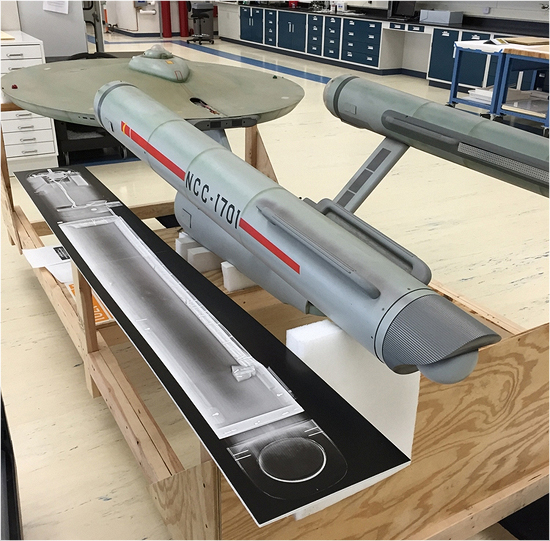As we’ve been reporting since last year, the Smithsonian’s National Air & Space Museum is undertaking a comprehensive conservation of the classic USS Enterprise filming model — built for the original Star Trek series — to preserve the eleven-foot starship for years to come, under the leadership of Margaret Weitekamp and Malcolm Collum.

Our exclusive interview with Dr. Weitekamp back in December first revealed that the Enterprise model would be undergoing X-ray analysis with help of the National Zoological Park, and today the Smithsonian team revealed the first shots from this massive undertaking — overseen by Peter Flowers and Marilyn Small of the Zoological Park team.

The X-ray apparatus produced images in a special format called “dicom” (which Peter explained, “makes a jpeg look like a pencil sketch”).
To get each image, Peter and Marilyn worked with Engen Conservation Chair Malcolm Collum and Museum photographer Dane Penland to line up the radiography machine on one side of the artifact with the photographic plate positioned exactly opposite on the other side.
They got the perfect exposure on the first try, based on Peter and Marilyn’s expert calculations comparing the probable density of the model versus the known density of biological specimens.

The composite image of the left nacelle shown here has been put back together by Museum conservator Ariel O’Connor. When printed at full size, it gives the conservators a clear map of the interior of the model, without disturbing any of the original structure. It’s worth noting how much the technology has improved since the last time the Enterprise model was X-rayed in the 1990s.
Immediately, we could see the light bulbs inside the model as well as finishing nails, electronics, and wiring. Some of the images were so clear that we could see the grain in the wood used to build the model!
It looks like the team is making some great progress on the Enterprise analysis — but they’ve still got a long way to go until the model is returned to public view next summer. For a larger look at any of the photos we’ve presented here, be sure to visit the National Air and Space Museum’s blog.
What are your thoughts on the project so far? Let us know in the comments below!
![]()






